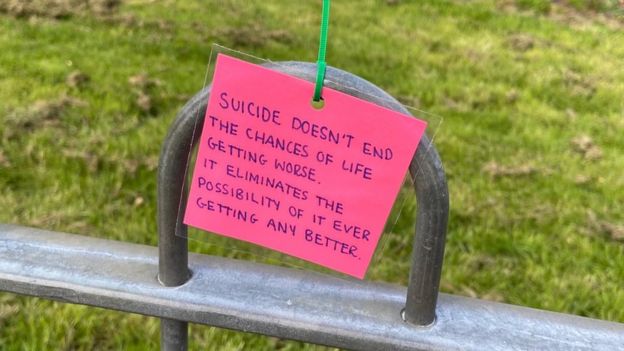
 The impact of suicide extends far beyond the individual who takes their own life. The loved ones left behind, known as survivors of suicide, carry a heavy burden of grief, confusion, and guilt. Losing someone to suicide is a devastating and complex experience, but it also offers an opportunity for survivors to find strength and support in their journey of healing.
The impact of suicide extends far beyond the individual who takes their own life. The loved ones left behind, known as survivors of suicide, carry a heavy burden of grief, confusion, and guilt. Losing someone to suicide is a devastating and complex experience, but it also offers an opportunity for survivors to find strength and support in their journey of healing.Survivors of suicide often struggle with a mix of emotions, including deep sadness, anger, shame, and a sense of abandonment. They may question themselves, wondering if they missed any signs or if they could have done something differently. The shame associated with suicide can be profound, as society often stigmatizes mental health struggles and views suicide as a personal failure rather than a complex issue.
Support groups and therapy are essential resources for survivors of suicide. Connecting with others who have experienced similar losses can provide a sense of understanding, validation, and support. Through sharing stories, survivors can find solace and learn coping strategies from those who have walked a similar path. Therapists specializing in grief and trauma can guide survivors through the healing process, helping them navigate the intense emotions and feelings of guilt that often arise.
#James Donaldson notes:
Welcome to the “next chapter” of my life… being a voice and an advocate for #mentalhealthawarenessandsuicideprevention, especially pertaining to our younger generation of students and student-athletes.
Getting men to speak up and reach out for help and assistance is one of my passions. Us men need to not suffer in silence or drown our sorrows in alcohol, hang out at bars and strip joints, or get involved with drug use.
Having gone through a recent bout of #depression and #suicidalthoughts myself, I realize now, that I can make a huge difference in the lives of so many by sharing my story, and by sharing various resources I come across as I work in this space. #http://bit.ly/JamesMentalHealthArticle
Find out more about the work I do on my 501c3 non-profit foundation
website www.yourgiftoflife.org Order your copy of James Donaldson's latest book,
#CelebratingYourGiftofLife: From The Verge of Suicide to a Life of Purpose and Joy
Link for 40 Habits Signup
bit.ly/40HabitsofMentalHealth
 www.celebratingyourgiftoflife.com
www.celebratingyourgiftoflife.com
One of the most powerful tools in a survivor's journey is self-compassion. It is crucial for survivors to acknowledge that they are not responsible for their loved one's suicide. They must learn to forgive themselves for any perceived shortcomings and understand that they did the best they could in a challenging situation. Practicing self-care, seeking professional help, and engaging in activities that bring joy and comfort are all vital components of self-compassion.
Survivors of suicide may also find solace in raising awareness about mental health and suicide prevention. By sharing their story, survivors can help eliminate the stigma surrounding mental health issues and encourage others to seek help. Taking part in fundraising events or participating in support networks can also provide survivors with a sense of purpose and a way to channel their grief into something positive.
Grief has no timeline, and healing is a unique journey for each survivor. Some days will be incredibly challenging, while others may offer a glimpse of hope and restoration. Survivors must be patient with themselves and allow the healing process to unfold naturally. It is essential to remember that healing does not mean forgetting or moving on from their loved one, but rather finding a way to carry their memory while also embracing life again.

https://standingabovethecrowd.com/james-donaldson-on-mental-health-survivors-of-suicide-finding-strength-in-the-face-of-tragedy/


No comments:
Post a Comment